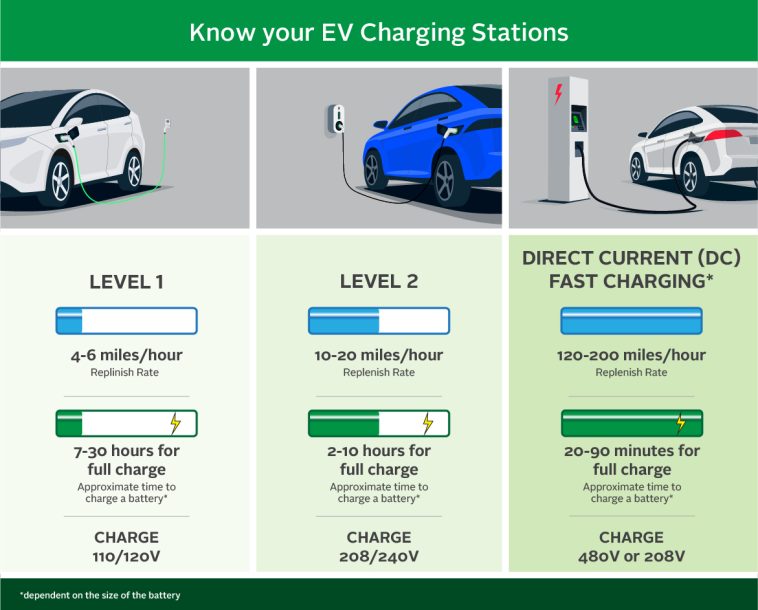The Federal Government’s General Services Administration (GSA), a custodian of all government buildings, is planning an astonishing move. According to reports, the agency is considering discontinuing the use of all 8,000 of its electric vehicle chargers, raising serious questions about the current administration’s commitment to environmental sustainability.
In addition to these plans, it appears the GSA is looking to dispose of its existing EV fleet, though it remains to be seen whether these vehicles will be sold or simply stored away. This raises additional questions about waste and disregard for the investments made in these vehicles.
Sources indicate that the agency could start issuing directives as soon as next week to dismantle the charging infrastructure. These chargers are currently being used not only by federally owned EVs, but also by vehicles owned by individual employees.
The agency seems to be aligning itself with the current administration’s stance, citing directives stating all GSA-owned charging stations ‘are not mission-critical.’ This is indeed a surprising development, as it conflicts with the typical perception of government agencies striving for sustainability.
Making the situation more complex, the GSA appears to be in the process of terminating network contracts keeping the EV chargers operational. Once these contracts lapse, the charging stations will be stripped of their functionality, depriving EVs of their essential charging points.
The procedure will vary, with some stations being switched off at the electrical breaker as early as next week, while others will follow a different timetable. The approaching dark days for EVs are casting a shadow of uncertainty over their viability and the federal government’s position on green matters.
Elevating concerns, the web page dedicated to the electrification of the GSA’s vehicle fleet has been suspiciously removed. This presents additional doubts regarding the agency’s commitment to electrification.
Previously, the GSA seemed to embrace electric vehicles, lining up with the Biden administration’s 2021 mandate calling for all federal fleet purchases to be zero-emission by 2035. The announcement of shuttering EV services now creates a stark contrast and casts a dark shadow over the previously celebrated environmental policy.
This GSA action follows a broader trend of retreating from ambitious plans to establish a nationwide EV charging network and hindering the purchase of more electric vehicles by the federal government.
In an unexpected move earlier this year, the funds allocated by the Biden administration to build out a nationwide EV charging network were frozen by President Donald Trump. Further, he unceremoniously revoked the former President Biden’s 2021 directive setting bold targets for EVs and emission standards.
In what seems to be a continued attack on eco-friendly policies, Trump has shown interest in scaling back EV tax credits, a decision that seems regressive and counter to the trend of supporting green initiatives. Although he hasn’t committed to abolishing them entirely, the fact that he’s considering such an elimination is startling.
It seems that the vision of an electrified Federal fleet is rapidly evaporating, replaced by the grim reality of a government failing to match their sustainability rhetoric with appropriate action.
At this moment, the GSA has not officially substantiated these reports. However, their actions are already causing a significant stir in the federal government and the larger EV industry.
These developments present an alarming picture of the government’s approach to environmental issues. Instead of following global trends towards greener and more sustainable practices, it seems as though key government agencies are actively regressing.
Regardless of confirmation from the GSA, their seeming retreat from sustainable practices presents a stark contrast to their previous advocacy for electric vehicles. The concern now has moved from just embracing green technologies to overcoming an active resistance.


